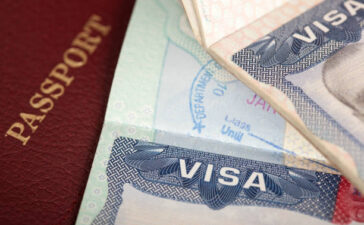The Australian Student Visa allows international students to stay in the country and study at a CRICOS-accredited education institution. This visa is valid for up to 5 years.
Advertisement
Besides meeting the academic and English language requirements. Applicants must prove that they have financial capability to cover tuition fees, living expenses. And travel costs for themselves and their dependents. They must also provide proof of Overseas Student Health Cover (OSHC), which API can facilitate.
Introduction to the Australian Student Visa
A student visa is needed for international students wishing to study in Australia. Australia is an increasingly popular study abroad destination for many reasons including its world-class universities. Multicultural albeit laid back locals and gorgeous beaches. It’s no wonder that it is the third most popular student exchange destination in the world!
To apply for a student visa, an individual needs to meet several requirements. These include meeting the Genuine Temporary Entrant (GTE) requirement, having sufficient funds to cover tuition fees and living costs while in Australia and meeting health and character requirements.
It is also a requirement that the individual obtains Overseas Student Health Cover (OSHC) for the duration of their visa. This is usually facilitated by the educational institute and included in their API program.
An individual can also bring their immediate family members with them if they are studying on a full-time basis. These individuals must be included in the initial student visa application. Or join as subsequent entrants once they are in Australia. There are different fees involved for each member of the family.
Advertisement
Eligibility Criteria for the Student Visa
The Student Visa is a great option for international students who want to live and study in Australia. It is a visa type that allows you to stay in the country for up to 4 years, depending on your course of study. There are several requirements you must meet in order to apply for the visa.
Having sufficient financial capacity to cover tuition fees and living expenses in Australia. This can be shown through money deposits, financial statements, bank loans, or scholarships. Having valid Overseas Student Health Cover (OSHC). This is a requirement for all international students studying in Australia.
Having good health and character. This includes undergoing a medical examination and obtaining a police clearance certificate. You also need to have adequate accommodation, welfare, and support arrangements in place, if applicable.
Interested candidates must also be enrolled in a full-time course that is registered on the Commonwealth Register of Institutions and Courses for Overseas Students (CRICOS). You will need to submit a Confirmation of Enrollment (CoE) from your educational provider to support your application.
Application Process and Documentation
It is essential for students to arrange all the necessary documents before they apply for a visa. All the submitted documents should be verified copies. This is the best way to show transparency in the application process. The list of required documents varies from country to country. Some of the most important ones include a valid passport, an offer letter from the educational institution and proof of financial capacity.
For financial capacity, it is necessary to prove that you have enough money to pay your tuition fees and living expenses while in Australia. You can do this by providing bank statements or evidence of scholarships or grants. It is also advisable to declare your family members in the application so they can join you if they want to.
Finally, it is possible that you will need to provide a medical and/or radiological checkup certificate to show that you are in good health. This is especially relevant for those who are planning to study in healthcare-related fields. You may be required to provide biometrics during the visa process, which will involve submitting fingerprints or facial photographs.
Work Rights and Part-Time Employment with Australian Student Visa
International students in Australia can work legally, but it’s important to adhere to your visa requirements. Your work hours should never interfere with your course, and you must maintain satisfactory progress and attendance.
Many students find employment on campus through their university, which may include roles like student ambassador, library assistant, and social media assistant. You can also seek out off-campus positions through purpose-built websites such as Seek and CareerOne.
If you’re seeking a part-time job, be sure to have a valid tax file number (TFN). Your TFN is used to claim your income and pay taxes. You can apply for a TFN through the Australian Tax Office website.
Before you start looking for a job, speak to your university’s career centre or a professional in your field of study. These people can provide tips for finding jobs and help you build your CV. They may even be able to refer you to employers. You can also look for job listings through dedicated websites and notice boards at your university. There are plenty of options for finding a part-time job as a student in Australia.
Post-Study Work Opportunities: Temporary Graduate Visa
While a student visa may allow you to work in Australia, it’s important that you understand the rules and restrictions. Check out the Department of Home Affairs website for more information on how many hours a week you can work. And other rules and regulations. In addition, your university and city may also offer internship, volunteer. Or student entrepreneurship programs to help you find work experience that will complement your studies.
Having an Australian tertiary qualification is highly respected around the world, and it can open up employment opportunities for you in your field of expertise. Additionally, if you study one of the following courses, you can apply for the Temporary Graduate Work Stream of the visa to stay in Australia after graduation:
You’ll need to meet certain requirements to receive this visa extension, including having completed a Bachelors, Master’s or PhD degree and being below 50 years old. You’ll also need to have held a student visa for at least six months and have studied in an occupation on the skilled occupation list.




